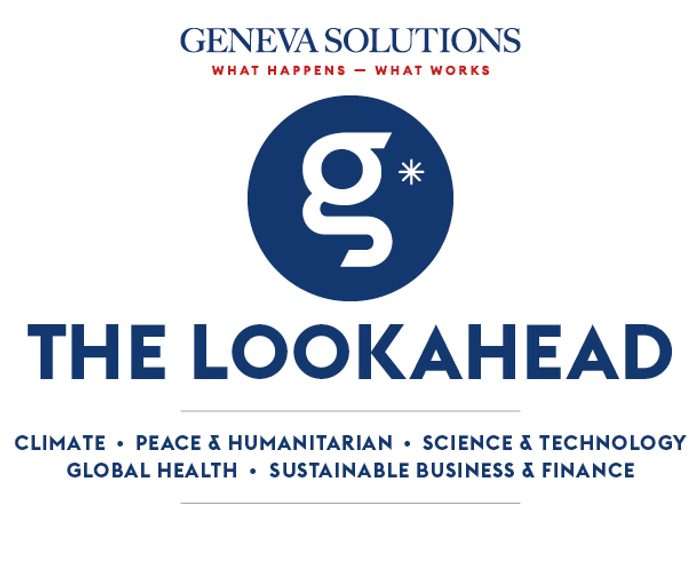Good morning, this is Paula. The mood for many delegates in town for the International Labour Conference has been upbeat, with lots of them whipping up UN-branded souvenirs. But for much of UN staff, a nebulous plan to streamline agencies is leaving many dumbfounded and confused.
The second and final week at the ILC will see several countries including Uzbekistan and Nicaragua - which said it was exiting the body - on the stand regarding their labour rights record. And in Nice, countries discuss how to better protect oceans. |

A worker at UN’s Assembly Hall during enovations of its European headquarters n Geneva, 8 May 2024. Keystone/Salvatore Di Nolfi)
|
|
|
👨🏻🔧BE-LABOURED.
For all those heading to work on the right bank of the lake, it’ll be another week of squeezing onto buses as visiting delegates stream over to ILO headquarters for the final days of the annual International Labour Conference.
|
|
Laggards on the dock.
Nations will finish reviewing complaints from employers and workers against fellow governments for violating labour rights conventions. In a rare move, the ILC invoked a clause last week that could lead to economic sanctions and legal action against Myanmar’s junta for its brutal repression of unions.
Today, Nicaragua will be under the spotlight after announcing it was quitting the organisation in February. Defenders suspect the regime wants to avoid scrutiny, but since the rules say the withdrawal process takes two years, investigations are moving ahead.
|
|
Russia-Ukraine standoff.
Sanctions against Russia – still suspended from certain forms of cooperation over its invasion of Ukraine and its repression of unions in occupied areas – will take centre stage at an executive meeting on Saturday, on the heels of the conference, with Moscow likely accusing the body of bias.
|
|
🐋PROTECTING OCEANS.
Countries are meeting this week in Nice for the third-ever UN Ocean Conference, two years after a treaty was signed to protect marine biodiversity.
Co-hosted by France and Costa Rica, the gathering comes as oceans that cover two thirds of the planet’s surface are in crisis. Plastics, global warming and loss of biodiversity are among some of the major issues.
|
|
Areas of concern.
The High Seas Treaty, which still awaits ratifications to come into force, established that 30 per cent of oceans are to be protected by 2030.
But to date, only 8.2 per cent has come under some form of protection designation, and only a fraction of that is effectively protected, such as around Ecuador’s Galápagos Islands, home to many rare and endemic species.
France prides itself on having surpassed the 30 per cent target. But bottom trawling involving heavy fishing nets dragged across ocean floors is practised in 42 per cent of the country’s protected areas, according to the environmental NGO Oceana, and president Emmanuel Macron is caught between public pressure to ban the practice and the industry’s fierce opposition.
|
|
Finance.
On the agenda are talks on how to increase funding for marine conservation. Countries are currently spending less than 10 per cent of what is needed, according to a globally agreed target. A political declaration and voluntary commitments are expected to be adopted in a final “Nice Ocean Action Plan”.
|
|
Rare minerals.
The management and restoration of deep-sea ecosystems is also being discussed, as the issue returns to the limelight following the Trump administration order that the National Oceanic and Atmospheric Administration expedite deep sea mining permits.
Environmental and civil society organisations condemn any mining in the deep seas, fearing that the activity will ever destroy ecosystems that are barely known. But a number of companies, as well as Norway’s parliament which voted in favour of the practice, are rearing to move forward amid rising demand for minerals sampled in nodules found on sea beds.
– By Paula Dupraz-Dobias
|
|
|
GS news is a new media project covering the world of international cooperation and development. Don’t hesitate to forward our newsletter!
Have a good day!
|

|
|
Avenue du Bouchet 2
1209 Genève
Suisse
|
|
|
|








